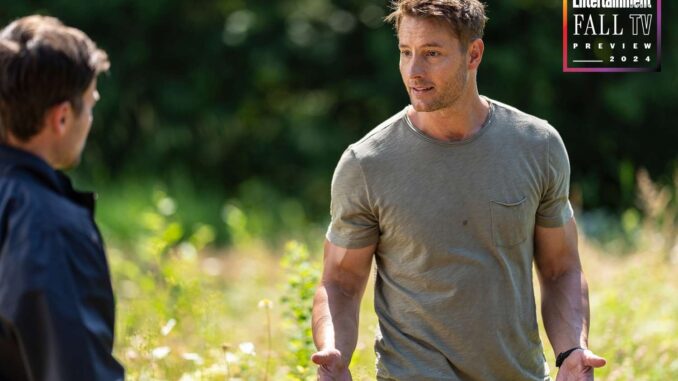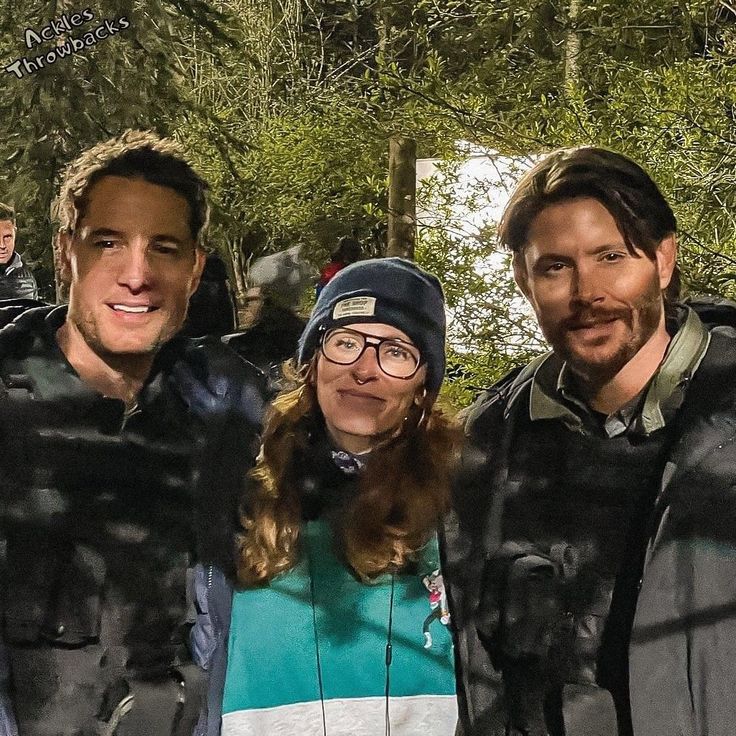
Tracker has earned a large following, becoming a popular procedural series, but one season 2 decision frustrated fans and should not be repeated in season 3. The series is inspired by the novel The Never Game by Jeffrey Deaver, but the series has many more cases than that novel allows for. It follows Colter Shaw (Justin Hartley) as he tracks down the missing in exchange for a reward every week.
There is, however, another longer mystery outside of those cases of the week that has been playing out since the beginning of the show.
It’s that overarching mystery and the issues surrounding it that have been frustrating fans of the show. With its charming cast, compelling puzzles, and unique way of presenting new cases, Tracker has been very successful outside the mystery of Colter’s past. Colter’s vague mentions of his childhood have led the show to the mystery of who killed his father, why, and just who his father really was. Tracker season 2, however, did not handle the mystery or the twist behind Ashton Shaw (Lee Tergesen) very well.
If you’ve been following Tracker, you know that Season 2 ended on a jaw-dropping note. The introduction of Ashton Shaw wasn’t just bold—it flipped everything on its head. But as fans buckle up for Season 3, there’s a nagging concern in the air: will the show fall into the same trap that frustrated so many last season? Let’s break down why Ashton Shaw was the shake-up Tracker desperately needed—and why Season 3 absolutely must avoid the same storytelling pitfall that nearly derailed Season 2.
The Ashton Shaw Twist—A Breath of Fresh, Chaotic Air
Who Is Ashton Shaw and Why Did He Matter So Much?
Ashton Shaw burst onto the scene with mystery, menace, and a magnetic presence. He wasn’t just another antagonist—he felt like a storm rolling in. His arrival brought tension, unpredictability, and stakes the show hadn’t explored before.
Raising the Bar with a Compelling Villain
Season 2 suffered from a “villain-of-the-week” formula that felt repetitive. Ashton Shaw shattered that mold. He connected to the overarching plot and tied into the personal lives of key characters. Finally, the story had depth.
Season 2’s Most Frustrating Decision—Abandoning Serialized Storytelling
The Episodic Trap That Almost Killed the Momentum
Here’s the hard truth: Season 2 leaned far too heavily on self-contained episodes. Sure, the weekly “mystery” format was fine at first—but after a while, it started to feel hollow. Every episode hit the reset button.
Lost Opportunities for Emotional Growth
Characters faced life-altering situations one week, and by the next, it was like nothing ever happened. That lack of continuity robbed the show of emotional weight. Viewers want to invest in arcs, not just isolated events.
What Made Ashton Shaw Different?
Finally, a Long-Term Threat
Ashton didn’t just pop in and out. He lingered. His actions had ripple effects. This is what Tracker needs more of—characters whose presence transforms the story over multiple episodes.
Complexity Over Convenience
Unlike past antagonists, Ashton wasn’t a one-dimensional villain. He had motives, history, and charisma. He made you question everything and everyone around him.
The Stakes Were Raised—Now Don’t Lower Them
Why Season 3 Needs to Commit to High Stakes
The final episodes of Season 2 reminded us just how intense Tracker can be when it wants to. The problem? The show hasn’t always stuck to those stakes. Season 3 must maintain that momentum.
Emotional Continuity Matters
We need to see characters carrying their trauma and choices forward. Let those consequences play out. Let relationships evolve—or collapse.
Avoid the Reset Button—Lean Into Serialized Arcs
Serialized Storytelling Is What Fans Crave
TV has changed. Audiences are smarter, and they want their stories to unfold gradually. If you hook us with Ashton Shaw, then don’t yank the rug out by jumping back into a case-of-the-week format.
Shows Like Breaking Bad and The Last of Us Did It Right
Think about why those shows worked. They didn’t backpedal. Every choice had weight. Every episode was a chapter—not a rerun.
Character Development Can’t Be an Afterthought
Let Colter Shaw Grow From Trauma
We saw Colter go through hell in Season 2. But unless Season 3 explores how those events changed him, it’ll feel cheap. He’s not a superhero—he’s human. Let him act like it.
Relationships Need Real Progression
Fans are dying to see emotional payoffs. Will Colter finally open up? Will unresolved tensions explode? If not, what’s the point?
Ashton Shaw Must Echo Through Season 3
Don’t Let His Story End Abruptly
Even if Ashton disappears, his legacy should linger. His influence should color every decision Colter makes. That’s how you build tension.
Bring Back the Shadow of Conflict
Even when a villain is gone, their ghost can haunt the story. That’s what great TV does. Season 3 has the perfect setup—don’t waste it.
What Season 2 Got Wrong—A Quick Breakdown
Too Many Filler Episodes
When half the season feels like filler, you lose momentum—and viewers.
Character Arcs That Go Nowhere
How many times did we think a character was about to grow, only for everything to reset?
Lack of Real Stakes Until the Finale
By the time tension arrived, it felt rushed. Don’t make us wait again.
What Season 3 Must Do Right
Embrace Serialized Drama
We need a central story thread—something to follow, obsess over, and theorize about.
Make Every Episode Count
Even standalone stories can tie into a larger arc. Just look at The Mandalorian. That’s the blueprint.
Develop Secondary Characters Fully
Give us reason to care about more than just Colter. The ensemble cast has potential—unlock it.

Emotional Payoff Over Procedural Comfort
Fans Remember Feeling, Not Just Plot
We don’t rewatch episodes for the case. We rewatch for the moments—the looks, the heartbreaks, the betrayals. Give us more of that.
Building Toward a Bigger Narrative
Let Season 3 Feel Like It’s Going Somewhere
When every episode builds toward something greater, viewers are hooked. That’s how you build a loyal fanbase that won’t miss a single week.
Conclusion: Season 3 Is Tracker’s Moment to Evolve
Season 3 is the show’s chance to turn a corner. Ashton Shaw was the kind of twist that changes everything—if the writers let it. But if Tracker falls back into the same frustrating decisions of Season 2, all that momentum will vanish. Don’t just entertain us—challenge us, thrill us, and make us feel something. It’s not about Ashton Shaw alone. It’s about what comes next.